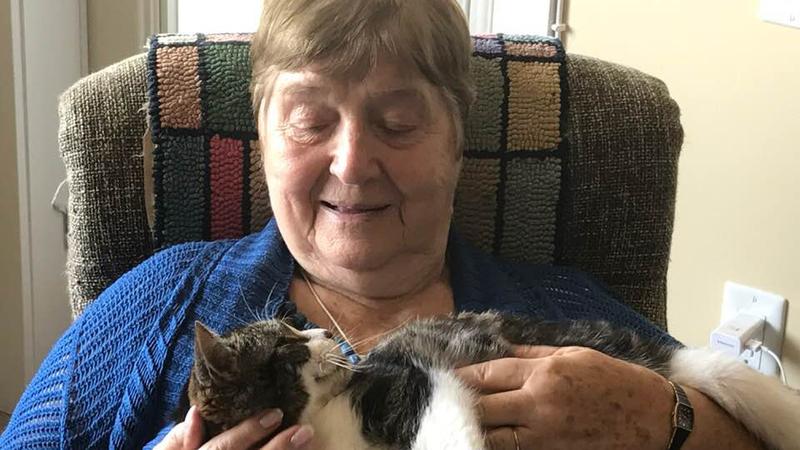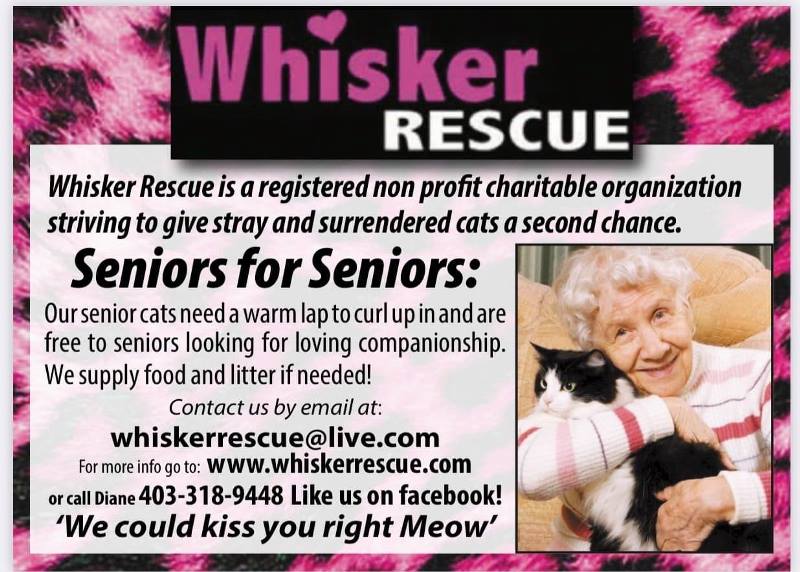
Seniors getting through pandemic with older cats from Whisker Rescue
An innovative program offered by Red Deer’s Whisker Rescue since 2008 is helping older folks get through the COVID-era doldrums.
Seniors for Seniors puts cats who are in the latter stages of life into the loving arms of a central Alberta senior seeking companionship. Whisker Rescue provides all food and litter, and even pays vet costs, but that means it relies heavily on donations from both individuals, and pet stores with stock they can’t sell.
“If it doesn’t work for whatever reason, we take the kitty back,” says Seniors for Seniors Coordinator Diane Webber. “If they want another, we can try that too. With COVID, it’s been a little tricky because with seniors in homes and lodges, we can’t go in.”
Webber says volunteers even go in to clip cats’ nails, and administer medication, free of charge. The program currently serves about 30 people, mostly within the city. Monthly costs, on the low-end, she notes, are around $150-200 just for food and litter.



